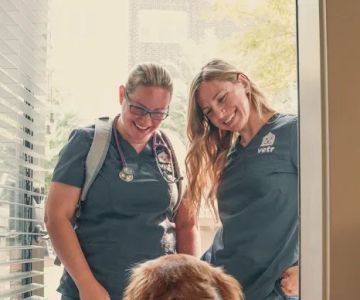- 1-importance-of-proper-pet-wound-care
- 2-initial-assessment-and-cleaning
- 3-effective-treatment-methods-for-pet-wounds
- 4-monitoring-healing-and-preventing-infection
- 5-real-life-examples-of-successful-wound-care
- 6-when-to-seek-professional-help
- 7-additional-tips-for-ongoing-pet-health
1. Importance of Proper Pet Wound Care
Proper pet wound care is essential to prevent infections, promote faster healing, and minimize discomfort for your beloved animal. Knowing the best practices for pet wound care can make all the difference between a quick recovery and complications that require extensive treatment.
Pets often sustain wounds from accidents, bites, or scratches during daily activities, and their natural instinct might lead them to lick or scratch injured areas, which can worsen wounds. Thus, understanding how to manage wounds correctly is critical to your pet’s health and wellbeing.
1.1 Why Immediate Care Matters
Timely and effective care reduces the risk of infection and complications. It also improves your pet’s comfort, reducing pain and anxiety associated with untreated wounds.

4041 Little Rd, New Port Richey, FL 34655, USA
See Details2. Initial Assessment and Cleaning of Pet Wounds
The first step in caring for any wound is a thorough assessment. Check the wound size, depth, and location to decide whether home care is appropriate or veterinary attention is needed.
Cleaning the wound gently with warm water or a mild saline solution is crucial to remove dirt and debris. Avoid harsh chemicals or human antiseptics unless recommended by a veterinarian, as these can damage delicate tissue.
2.1 Handling Your Pet During Wound Care
Use calming techniques and if necessary, an Elizabethan collar to prevent your pet from aggravating the injury. Being patient and gentle will make wound care easier for both you and your pet.
3. Effective Treatment Methods for Pet Wounds
Depending on the wound, treatments may include topical antibiotics, protective bandaging, or prescribed oral medications. Keeping the wound clean and dry while promoting air circulation helps healing.
For deeper or infected wounds, professional veterinary care is essential. Sometimes, stitches or surgical intervention might be necessary to ensure proper closure and healing.
3.1 The Role of Natural Remedies and Modern Medicine
Some pet owners explore natural remedies like honey or aloe vera, which can aid healing, but these should be used cautiously and under veterinary advice to avoid adverse reactions.
4. Monitoring Healing and Preventing Infection
Regularly check your pet’s wound for signs of infection such as redness, swelling, discharge, or foul odor. Changing dressings as directed and keeping your pet from licking the area is critical.
Observing your pet’s overall behavior—appetite, activity, and mood—can also indicate if the wound is healing properly or if veterinary intervention is needed.
5. Real-Life Examples of Successful Wound Care
One pet owner shared how immediate cleaning and careful bandaging helped her dog recover quickly from a thorn injury during a hike. The dog’s wound healed without infection, illustrating how effective basic care is when applied promptly.
Another story highlights a cat whose minor bite wound was closely monitored with vet-prescribed topical ointments, preventing complications and enabling a smooth recovery.
6. When to Seek Professional Help
While many wounds can be managed at home, certain conditions require prompt veterinary attention. These include large or deep wounds, continuous bleeding, signs of infection, or wounds near sensitive areas such as eyes or joints.
Veterinarians can provide advanced wound management techniques, pain control, and antibiotics if necessary to ensure optimal healing.
7. Additional Tips for Ongoing Pet Health
Maintaining a clean living environment and routine health checks reduce the likelihood of injuries and infections. Feeding a balanced diet and keeping your pet active supports immune health, aiding faster recovery when wounds occur.
For tailored advice, trusted products, and professional care services aligned with best practices for pet wound care, Hidden Brook Veterinary offers expert support and a range of recommended solutions to keep your pet healthy and happy.










